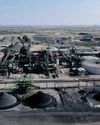Prøve GULL - Gratis
How globalisation is impacting opportunities in Africa and beyond
The Star
|September 08, 2025
GLOBALISATION can be defined as, “The growing interdependence of the world’s economies, cultures, and populations, brought about by cross-border trade in goods and services, technology, and flows of investment, people, and information. Countries have built economic partnerships to facilitate these movements over many centuries.”
-
Since one of four global economic shocks (black Swans) emerged in 2020 with the Covid-19 pandemic, followed by the Russia-Ukraine war (2022), the attack on Israel by Hamas (2023) and the introduction of tariffs on most developed and developing countries by the Trump administration (2025), the debate continues on whether globalisation has slowed down, or is even reversing.
In the South African context, load-shedding has put a spotlight on the energy crisis, and the recent focus on the emerging Southern African “gas cliff” has further exacerbated the continental energy crisis.
Modern trade theory places international trade as one of the most critical drivers of economic growth and development. The principles of free trade permits countries to specialise, using their resources more efficiently and integrating into global value chains (Krugman et al., 2018). What remains in balance is whether Africa can still utilise trade as a driver of growth and, and the policies required or most viable for its development.
Globalisation and the UN Sustainable Development Goals (SDG)
The Sustainable Development Goals (SDGs), also known as the Global Goals, were adopted by the United Nations in 2015. This was a worldwide attempt to end poverty, protect the planet, and ensure that by 2030 all people enjoy peace and prosperity. Goal 8 is to: Promote sustained, inclusive, and sustainable economic growth, full productive employment, and decent work for all.
From 2000, before the heavily outbreak of the Covid-19 pandemic in 2020, the number of workers living in extreme poverty has declined dramatically, despite the lasting impact of the 2008 economic crisis and global recession. In developing countries, due to globalisation of these countries, the middle class now made up more than 34 percent of total employment - a number that has almost tripled between 1991 and 2015.
Denne historien er fra September 08, 2025-utgaven av The Star.
Abonner på Magzter GOLD for å få tilgang til tusenvis av kuraterte premiumhistorier og over 9000 magasiner og aviser.
Allerede abonnent? Logg på
FLERE HISTORIER FRA The Star

The Star
‘Hey! You Ought to Forgive’: a guide to breaking cycles of hurt
IN HEY! You Ought to Forgive, author Mahlatse Nchabeleng addresses one of the hardest commands of the heart: forgiveness.
4 mins
October 15, 2025
The Star
Chiefs taking risk by keeping Nabi's former assistants despite struggles
YOU WOULD have expected the head honchos at Kaizer Chiefs to have learnt their lesson by now. But such is the questionable nature of management that they seem not to care anymore.
3 mins
October 15, 2025
The Star
Moody's, GCR see signs of recovery as South Africa's growth outlook remains stable
RATINGS agencies Moody’s and GCR Ratings say a positive trend is emerging in South Africa's economic growth trajectory, with both agencies maintaining a stable outlook as reforms begin to show progress and fiscal discipline continues to hold.
2 mins
October 15, 2025
The Star
'Siyaya e-America' as brilliant Bafana end 23-year World Cup hoodoo
THE South African men's national football team, Bafana Bafana, enjoyed a rare favour from archrivals Nigeria last night as they ended a 23-year World Cup qualification hoodoo.
2 mins
October 15, 2025

The Star
Why South Africa needs to become an electro-state
THE world is entering a new energy era, one defined by technological mastery. In this emerging reality, the countries that lead will not be those with the largest fossil fuel reserves, it will be those that can produce, store, and use electricity efficiently across every sector of their economies. This is the beginning of the age of electrotech and the rise of what can be called the electro-state.
3 mins
October 15, 2025
The Star
'Future effect' - the leadership trait that matters
Good leaders know how to cultivate team intelligence and collaboration
3 mins
October 15, 2025
The Star
Mental support for victims cannot wait
WORLD Mental Health Day, observed earlier this month, provided an annual reminder that mental health is not a secondary need but a cornerstone of human resilience and recovery.
2 mins
October 15, 2025
The Star
Let’s fix SAFA, the nation’s pride
WHEN FIFA, the world soccer governing body, docked Bafana Bafana three points for fielding an ineligible player, Tebogo Mokoena, in their March match against Lesotho, many South Africans were devastated because the country is known for its soccer fervour.
1 min
October 15, 2025
The Star
Arsenal eye chance to pull clear in EPL title race
ARSENAL have a great opportunity to cement their newfound status as English Premier League title favourites when league action resumes, with closest challengers Liverpool facing an extremely challenging run in their next five fixtures.
1 mins
October 15, 2025

The Star
Tharisa reports strong 4th performance with increased PGM and chrome production
THARISA, the mining company dual-JSE and London Stock Exchange listed mining company reported a strong fourth quarter performance after higher mining, milling, grade and recovery metrics boosted chrome and platinum production.
2 mins
October 15, 2025
Listen
Translate
Change font size
